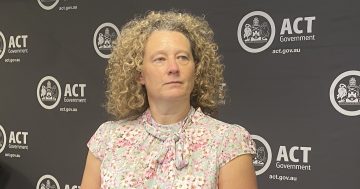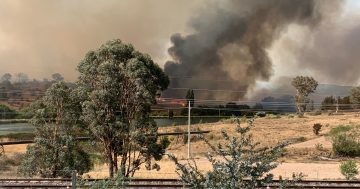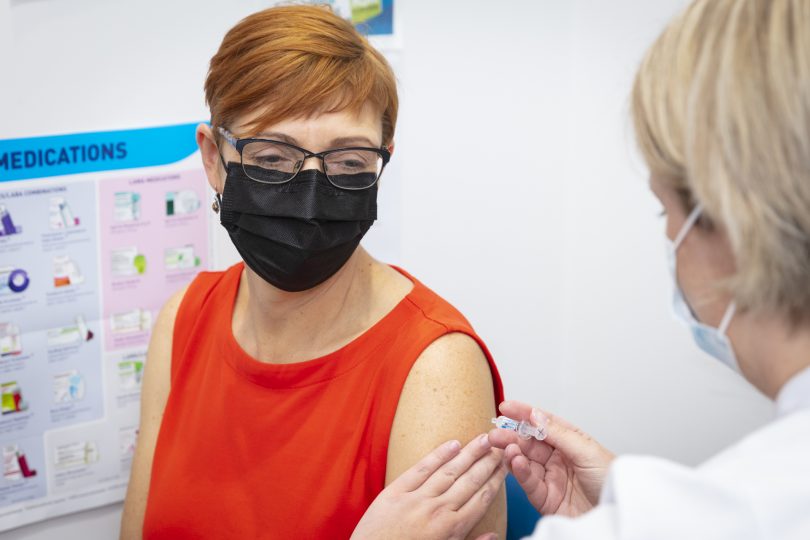
Minister for Health Rachel Stephen-Smith received her flu vaccine at Capital Chemist Kingston on Friday 29 April. Photo: Thomas Lucraft.
Ahead of what could be a double-whammy (flu and COVID-19) winter, the Territory’s health authorities are urging Canberrans to get their flu jab.
It’s been three years since the flu properly reared its ugly head in Canberra as international and interstate border restrictions largely kept it out.
But this year, those borders are open and health authorities say this means there will be influenza. It’s not yet known how bad the season will be.
So far 44 influenza cases have been reported to ACT Health this year. It’s unknown if any of these people are in hospital.
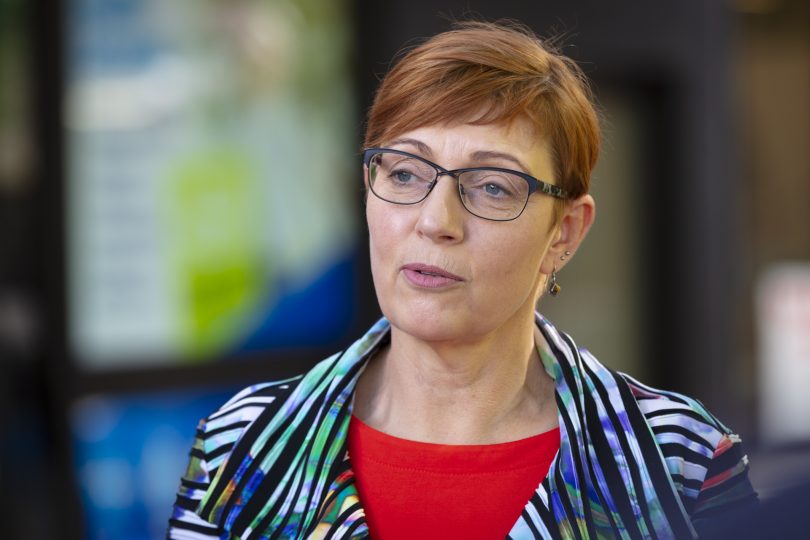
Minister for Health Rachel Stephen-Smith encouraged Canberrans to get the flu jab. Photo: Thomas Lucraft.
How many cases or how deadly this season will be they cannot yet say, but Minister for Health Rachel Stephen-Smith said Canberrans are likely to have less immunity than usual because they haven’t been exposed to the flu in the past two winters.
“We are going to start to see a flu season – and it may not be as large as the 2019 or 2017 seasons – but it will be significant in the context of already having COVID-19 in the community,” she said.
“Influenza can be really serious. In severe cases, it can result in permanent disability or death.”
Between 4 January and 29 August 2019, ACT Health was notified of 3343 cases of the flu. In the same period in 2020 the department was notified of only 201 cases and last year, only nine – a “historic low”.
Uptake of the influenza vaccine last year was also extremely low.
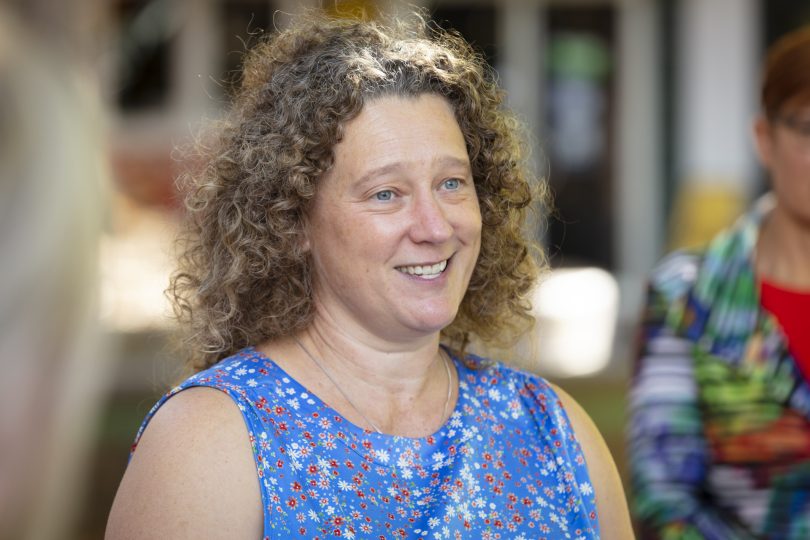
Chief Health Officer Dr Kerryn Coleman said there is significant uncertainty around what the flu season will be like this year. Photo: Thomas Lucraft.
Reporting on influenza is different to reporting COVID-19.
Chief Health Officer Dr Kerryn Coleman explained positive influenza cases are picked up through pathology results.
“Some information [around] typing will also be provided as the season goes on,” she said.
“At the moment, we are collecting far more data for COVID-19 than we are for influenza but we are looking at how we report on the flu season … in a more comprehensive way.
“It’s not easy because there are so many different surveillance systems in place – all set up for different reasons – and all collecting different data in different ways.”
Dr Coleman said it was important any information provided to the community was useful and meaningful.
But she noted there is far more testing this year than in previous winters due to COVID-19 testing.
“We don’t know what the size of the underreporting is; we don’t know what the size of the group of people not presenting as ill to their doctor to get a test is,” she said.
Dr Coleman said there would soon be more advice given to the community regarding testing arrangements this winter after expressing concern that some people are questioning its necessity and purpose.
Dr Coleman encouraged people not to forget there are other health conditions and illnesses in the community aside from COVID-19 and said they should visit a GP if unwell.
Given it’s now been two years of being asked to get vaccinations of some kind or another, Ms Stephen-Smith acknowledged there could be some “jab fatigue” in the broader community.
“I can understand that some people would be thinking ‘oh goodness, not another needle to be getting’, but the flu vaccination is really important to protect yourself … and those who are vulnerable,” she said.
The peak of the flu season is usually June to September, hence people are being urged to get the shot, as well as their COVID-19 booster, ahead of the onset of winter.
Ms Stephen-Smith particularly encouraged anyone vulnerable to access their flu shot.
The jab is free under the National Immunisation Program for children aged six months to under five years, people aged 65 and older, pregnant women, Aboriginal and Torres Strait Islander people aged six months and older and people aged six months and over with underlying medical conditions.
The flu vaccine is available from GPs for all ages, pharmacies for people aged 10 years and over and Early Childhood Immunisation Centres for children from six months to under five years of age.

















